June 26, 2025 | 04:11 GMT +7
June 26, 2025 | 04:11 GMT +7
Hotline: 0913.378.918
June 26, 2025 | 04:11 GMT +7
Hotline: 0913.378.918
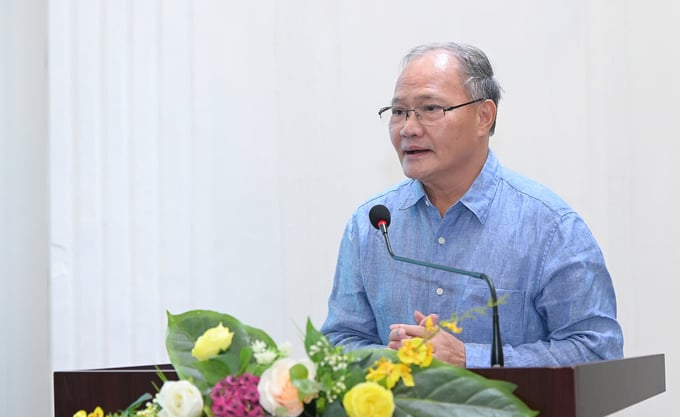
Dr. Hoang Van Thang: "The dam must have an owner". Photo: Tung Dinh.
Vietnam's irrigation system, with approximately 7.000 dams and reservoirs across the country, has extended its reach to the fields and farmlands of local communities, playing a vital role in the remarkable growth of the agricultural sector in recent years.
Dr. Hoang Van Thang, former Deputy Minister of Agriculture and Rural Development and Chairman of the Vietnam Large Dams and Water Resources Development Association, pointed out that most of the major dams built for irrigation and hydropower purposes have been constructed in the past two decades. This period coincided with significant advancements in scientific and technological capabilities, alongside a well-established investment framework that allowed for the adoption of cutting-edge global technologies. As a result, the quality of these projects has been ensured.
However, the increasing impacts of climate change, characterized by more frequent and severe weather events and natural disasters, combined with institutional gaps in water resource management, have reduced the effectiveness of these systems. Consequently, ensuring the safety and proper functioning of the dams and reservoirs is now facing a range of new and complex challenges.
Speaking at the forum titled "Enhancing the effectiveness of information, early warning systems, and ensuring the safe operation of dams and water reservoirs in the new context" on the morning of November 19, Mr. Hoang Van Thang emphasized that ensuring the safe operation of dams and reservoirs must begin with the clear assignment of responsibility for each facility - meaning every dam and reservoir must have a designated "owner". In addition to this, it is essential to establish relevant standards, regulations, and financial solutions to support the proper management and operation of these structures.
He explained that currently, only about two-thirds of small dams and reservoirs are managed and operated by local authorities or grassroots irrigation organizations. However, the remaining 2,500 small dams and reservoirs do not have clear ownership and lack the necessary financial mechanisms to ensure proper maintenance and management.
"During a field visit, I saw trees growing in the middle of a reservoir. Clearly, there are issues with management, which leads to ineffective exploitation of water resources", the former Deputy Minister raised concerns.
In addition to the need to quickly assign "owners" to small irrigation works, the Chairman of the Vietnam Large Dams and Water Resources Development Association recommended that the capacity of management staff be enhanced, with a focus on improving skills in monitoring, data analysis, and measurement to detect risks early. Dams and reservoirs should be invested in and upgraded, with a particular emphasis on improving flood discharge capacity to ensure their safe operation in the new context.
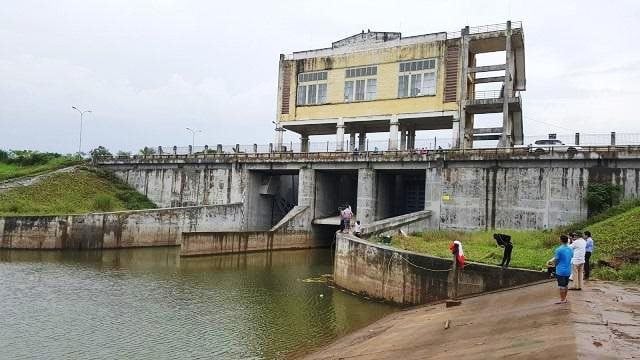
The Long Tuu culvert area (Dong Anh district, Hanoi). Photo: Tung Dinh.
Referring to the recent Typhoon No. 3, which caused severe damage to the northern provinces, Mr. Hoang Van Thang highlighted that the safety of dams and reservoirs must be closely linked to the safety of downstream areas. He stressed the importance of building a comprehensive early warning system, flood mapping systems, and utilizing community-based approaches to disaster management.
To make this a reality, Mr. Thang suggested that the Ministry of Agriculture and Rural Development, the Department of Irrigation, local governments, and companies managing irrigation infrastructure continue to focus on restoring and upgrading the existing systems. In particular, he emphasized the need to improve flood discharge capacity at major irrigation reservoirs such as Cua Dat, Ngan Trui and Dau Tieng.
Simultaneously, Dr. Hoang Van Thang stressed the necessity of improving research and forecasting capabilities related to rainfall and flooding, particularly focusing on high-intensity storms, the shifting of rainfall patterns towards the end of the rainy season or even into the dry season. This is crucial for developing quick and timely response strategies. He also called for the active participation not only of ministries and governmental agencies but also urged the involvement of various organizations, individuals, and societal resources.
"Ensuring the safety of dams must be closely integrated with the concept of flood management based on river basins, operating multiple reservoirs in coordination, and managing water flow in real-time", Dr. Thang explained. He further elaborated on the need to enhance the capabilities of leadership agencies at all levels, as well as the supporting units that assist these agencies. Additionally, he highlighted the importance of planning for flood control based on river basin management, and the establishment of organizations that can help with decision-making in flood management scenarios.
Finally, the Chairman of the Vietnam Large Dams and Water Resources Development Association addressed the need to improve the structure of state management and the organization of agencies responsible for dam safety. He emphasized the importance of creating mechanisms to bring together experts and enhance the effectiveness of specialized associations.
Currently, Vietnam is researching the establishment of several dam safety centers and is actively promoting mechanisms to gather experts, particularly from large consulting agencies that have been privatized or shifted their operations to other sectors.
Deputy Director of the Irrigation Department, Luong Van Anh, stated that the Ministry of Agriculture and Rural Development has directed the Irrigation Department to focus on addressing issues related to policies. Among the key issues are the pricing of irrigation services, infrastructure, funding for maintenance, repairs, and ensuring the safety of dams and reservoirs.
The department is continuing to gather feedback in order to revise a series of decrees, such as Decrees 96, 114 and 129. Therefore, Mr. Luong Van Anh urged irrigation management companies to continue providing their input to the department for compilation and further consideration.
Translated by Phuong Linh
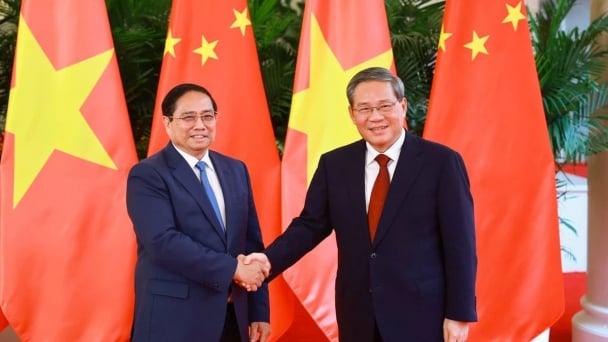
(VAN) Prime Minister Pham Minh Chinh held talks with Chinese Premier Li Qiang on June 24, in Tianjin, China.
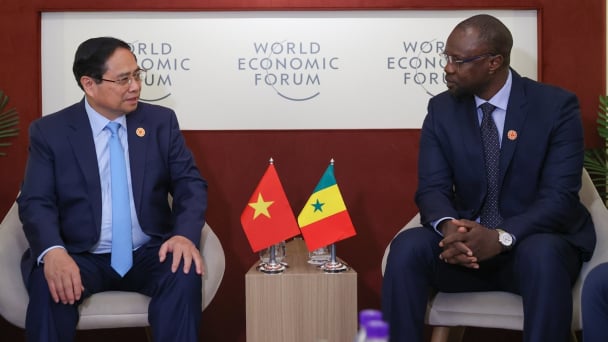
(VAN) On the occasion of attending the World Economic Forum (WEF) in Tianjin, China, on the morning of June 25 (local time), Prime Minister Pham Minh Chinh met with Senegalese Prime Minister Ousmane Sonko.

(VAN) The Net Zero door is opening, but no one can walk through it if they stay outside the mandatory emissions inventory roadmap starting in 2025.
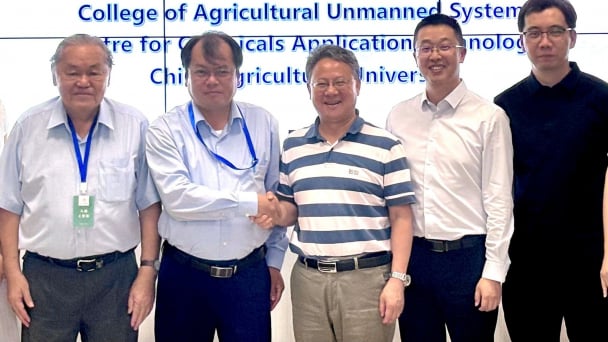
(VAN) The visit to China Agricultural University opens up new prospects for high-tech agricultural cooperation, fostering connections between research institutes and enterprises of Vietnam - China.

(VAN) Con Dao, the emerald gem in the vast ocean, is undergoing a powerful revival, transforming into one of Vietnam’s leading ‘eco-spiritual paradises.’ In this journey.
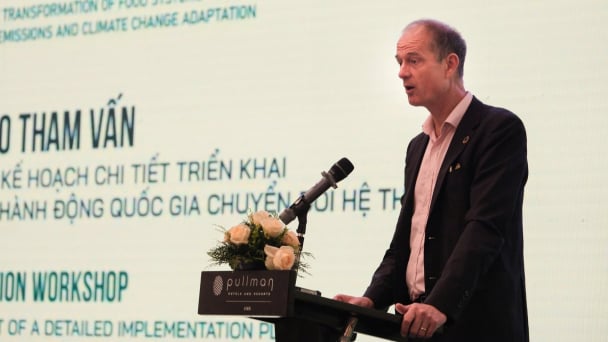
(VAN) UNDP in Vietnam organized a consultative workshop to discuss ways to integrate detailed implementation plans into the national food systems transformation strategy.
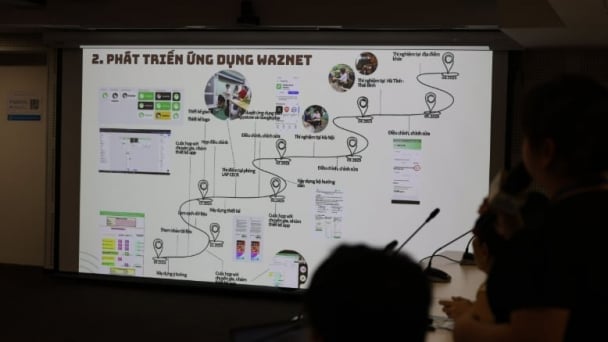
(VAN) Waznet helps digitize waste collection data, recognizing the environmental contributions of informal collectors in reducing greenhouse gas emissions.